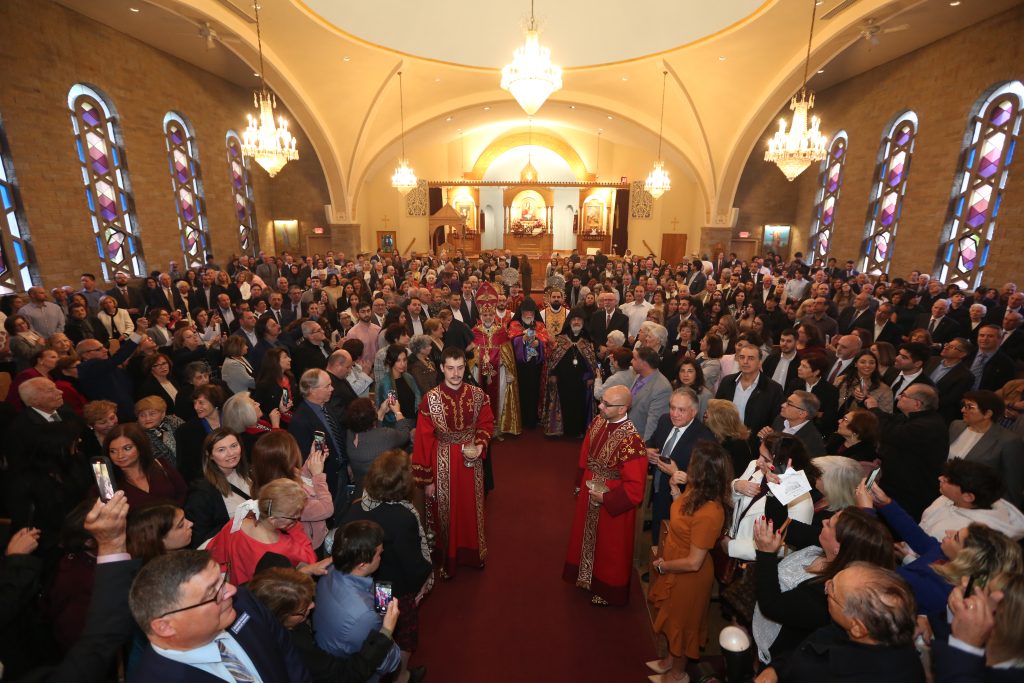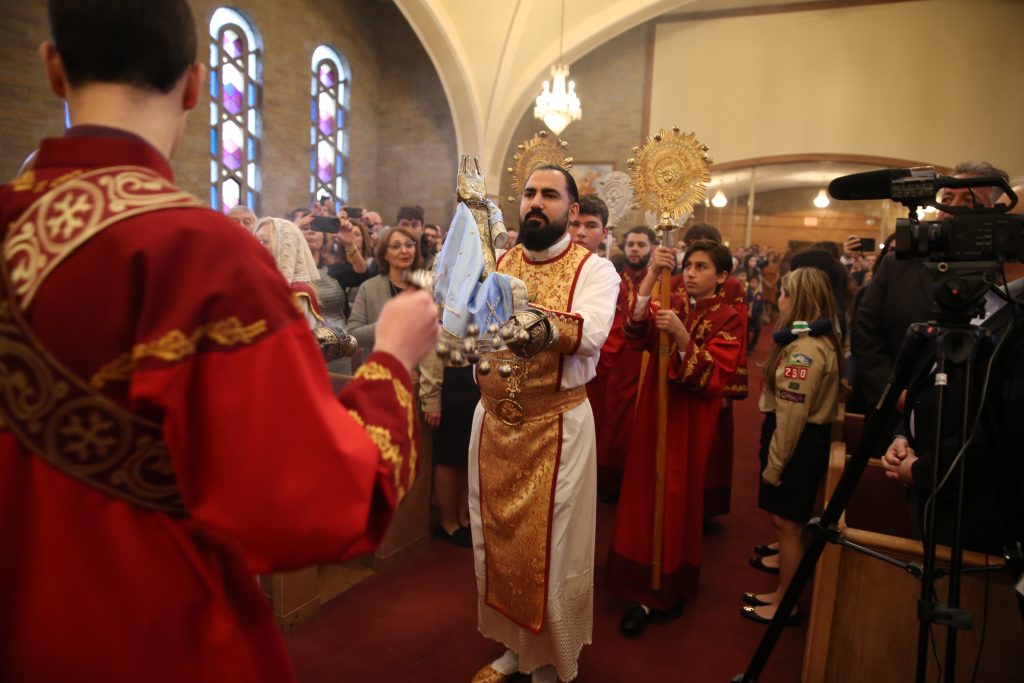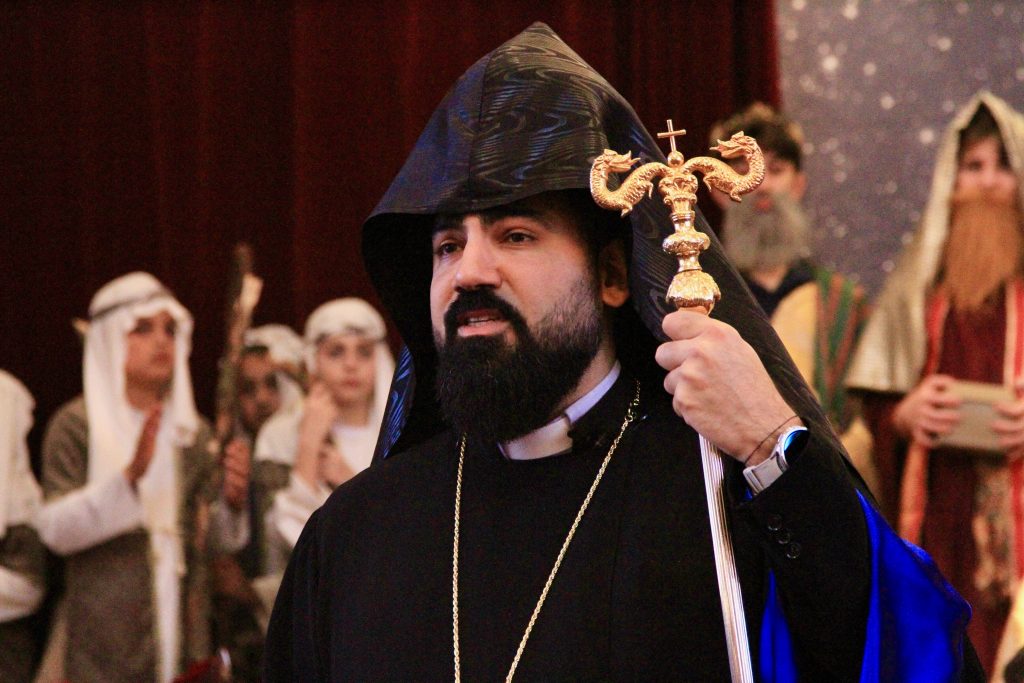Ministry and Memory in the Armenian Diaspora
No two congregations are the same. While I was enrolled at VST, I was simultaneously assigned to my first parish – St. Gregory Armenian Apostolic Church in Richmond, BC. A young Armenian congregation, on the smaller end of Diasporan communities, as far away as one can be from our homeland, yet, one of the most vibrant and dedicated group of families who leave no stone unturned in the struggle to survive and thrive as members of Christ’s body.
My second parish has recently become St. Stephen’s Armenian Apostolic Church in Watertown, Massachusetts, serving the Greater Boston area. It is the oldest Armenian community in North America and second largest on the continent. The Armenian Genocide during World War One has made it so that most Armenian cemeteries have been pulverized from the face of the earth, a final blow in wiping out a nation. In Armenian graveyards, one usually finds gravestones are dated post-genocide. But Boston is that unique place where almost any cemetery one walks into, they find a sea of IANs* on headstones dating back to the 1800s, some even 1700s. The 1915 genocide was the final solution, but the 600-year reign of the Turkish Ottoman Empire has a long trail of massacres, hence the numerous waves of emigrations. This congregation has been able to survive through multiple generations of Armenians who have kept their identity against all odds and through hundreds of years of displacement.
This congregation has been able to survive through multiple generations of Armenians who have kept their identity against all odds and through hundreds of years of displacement.
These two communities share certain similarities, challenges, and achievements, and they are also endowed with unique realities. Extrapolating that data to the thousands of Armenian communities across the diaspora and homeland, the divergences continue to grow. Expand that even further to every single congregation from all the Christian churches on this planet – we get a plethora of possibilities.
In the midst of all these, VST, in that far away corner of the world, is called to educate and form thoughtful, engaged and generous Christian leaders, catering not only to local applicants or solely to those stemming from its founding denominations, but potentially to every single church and candidate from any corner of the world – a tall order! Certainly, this calling has evolved over time, with the changing realities and ever new challenges within Christendom, but it has never shaken VST into irrelevancy. Quite the opposite, its leadership, devotees, and donors have found divine inspiration and solutions at every turn. Through that journey, it has transformed into a unique theological school, where seminarians from various denominations meet, even sometimes with individuals of other faiths or no persuasions. The background each student arrives from is priceless, and each ought to be proud of their heritage. The value they all find at VST? A perfect transition, a stepping stone of some sorts, where one can more broadly develop the generosity that would ideally be inseparable from Christianity. Thus, I remain forever grateful to VST for becoming that bridge between seminary and the oikoumene – the inhabited world.

St. Stephen’s Watertown Armenian Church | Photo by Fr. Hrant
A final note and speaking of oikoumene, within its modern connotation: VST is also an exceptional school to develop one’s ecumenical skills. Between the two parishes mentioned above, I had the fortune to serve as the ecumenical and interreligious officer of the Armenian Church. My responsibilities took me to all corners of the world. At every step of the way, alongside my heritage and tradition, VST was also present – thoughtful, engaged and generous.
These two communities share certain similarities, challenges, and achievements, and they are also endowed with unique realities. Extrapolating that data to the thousands of Armenian communities across the diaspora and homeland, the divergences continue to grow. Expand that even further to every single congregation from all the Christian churches on this planet – we get a plethora of possibilities.
The value they all find at VST? A perfect transition, a stepping stone of some sorts, where one can more broadly develop the genorisity that would be ideally inseparable from Christianity.
In the midst of all these, VST, in that far away corner of the world, is called to educate and form thoughtful, engaged and generous Christian leaders, catering not only to local applicants or solely to those stemming from its founding denominations, but potentially to every single church and candidate from any corner of the world – a tall order! Certainly, this calling has evolved over time, with the changing realities and ever new challenges within Christendom, but it has never shaken VST into irrelevancy. Quite the opposite, its leadership, devotees, and donors have found divine inspiration and solutions at every turn. Through that journey, it has transformed into a unique theological school, where seminarians from various denominations meet, even sometimes with individuals of other faiths or no persuasions. The background each student arrives from is priceless, and each ought to be proud of their heritage. The value they all find at VST? A perfect transition, a stepping stone of some sorts, where one can more broadly develop the generosity that would ideally be inseparable from Christianity. Thus, I remain forever grateful to VST for becoming that bridge between seminary and the oikoumene – the inhabited world.

St. Stephen’s Watertown Armenian Church | Photo by Fr. Hrant
A final note and speaking of oikoumene, within its modern connotation: VST is also an exceptional school to develop one’s ecumenical skills. Between the two parishes mentioned above, I had the fortune to serve as the ecumenical and interreligious officer of the Armenian Church. My responsibilities took me to all corners of the world. At every step of the way, alongside my heritage and tradition, VST was also present – thoughtful, engaged and generous.
*-IAN is a common Armenian surname.
Hayr Hrant Tahanian was born in Montreal to a family of Genocide survivors. He studied theology in Lebanon and was ordained in 2010. He served in Vancouver while completing a Master of Theology at UBC, and now serves as Pastor of St. Stephen’s Armenian Apostolic Church in Massachusetts and as Ecumenical Officer of the Armenian Church (Eastern Prelacy, USA). He is Co-Moderator of the World Council of Church’s Reference Group on Discrimination.
